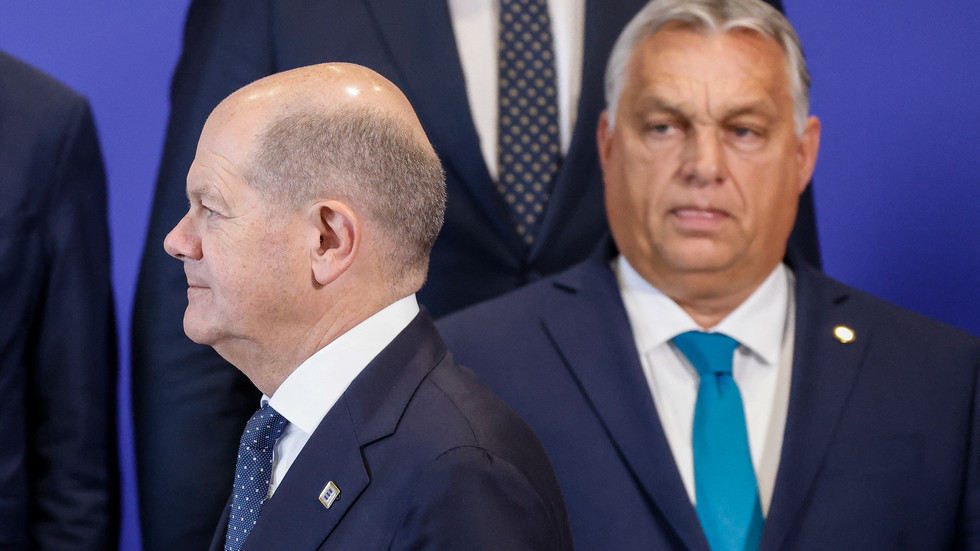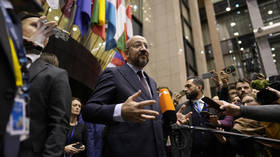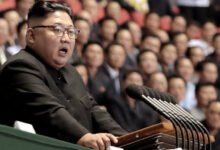
The German chancellor reportedly told the Hungarian PM to “grab a coffee” while the rest of the EU leaders would vote on the issue

Germany’s Chancellor Olaf Scholz and Hungary’s Prime Minister Viktor Orban. © Ludovic MARIN / AFP
German Chancellor Olaf Scholz managed to get Hungarian Prime Minister Viktor Orban out of the room at a key EU leaders meeting in Brussels on Thursday so that he would not veto a motion to begin formal accession talks with Ukraine, Politico reported on Friday. The ruse reportedly allowed the EU to move forward with the process.
While the EU Council recommended opening membership talks with Kiev in November, Orban has repeatedly criticized the initiative, branding Ukraine “one of the most corrupt countries in the world,” and claiming that it had failed to meet the necessary conditions for such a decision.
EU leaders attempted to persuade Orban to change his stance during marathon negotiations in Brussels on Thursday.
Finally, about three hours into the talks, Scholz told Orban that “he should consider leaving the room briefly,” and, perhaps go “grab a coffee outside,” Politico reported, adding that the idea behind the suggestion was that EU leaders would be able to unanimously approve the move while Orban would be able to say that he had not voted in favor.


Read more
According to Politico’s sources, while Scholz’s down-to-earth strategy raised some eyebrows both in the EU and beyond, it had been “pre-agreed” and carried out in a “constructive manner.” One official told the magazine that the German chancellor resorted to “an old trick from his time with the Young Socialists,” the youth wing of his Social Democratic Party.
The ground for the ploy, according to the magazine, was set in the previous hours of the summit that saw many EU leaders piling strong pressure on Orban, attempting to debunk his arguments that Ukraine was not worthy of being given a path to joining the bloc.
Finally, while Orban did not veto the accession talks with Ukraine, he called the decision “completely senseless, irrational, and incorrect.”
Nevertheless, he still blocked the EU’s four-year plan to allocate €50 billion ($54 billion) for Ukraine. Orban’s chief political adviser previously insisted that Budapest could sign on for the move if the EU unfreezes all of the €30 billion earmarked for Hungary that was blocked over corruption and rule-of-law concerns. Brussels previously unlocked €10 billion, citing Budapest’s progress on judicial reforms to make the country’s courts more independent.

